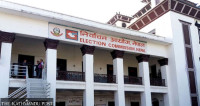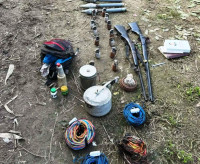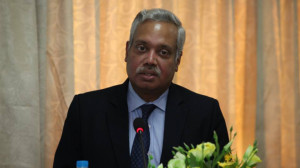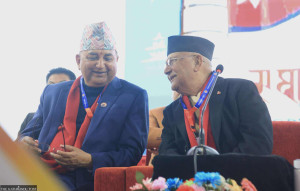National
ADB urges strict action against slow contractors
The Asian Development Bank (ADB) has urged the government to adopt stringent contract discipline by initiating concrete action against non-performing contractors and consultants as their ‘weak performance’ has resulted in slow budget implementation and low disbursement.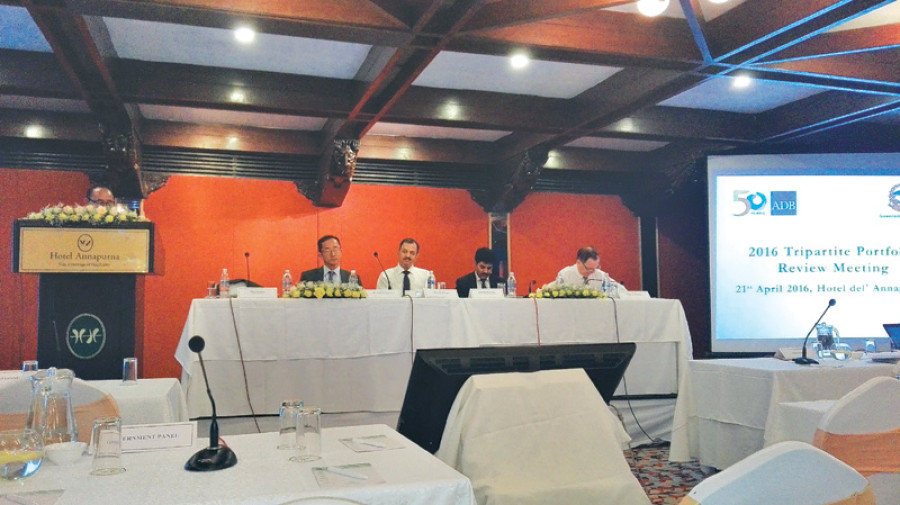
The Asian Development Bank (ADB) has urged the government to adopt stringent contract discipline by initiating concrete action against non-performing contractors and consultants as their ‘weak performance’ has resulted in slow budget implementation and low disbursement.
Nepal’s portfolio performance has been quite weak among South Asian countries due to lengthy procurement processes, weak management capacity and poor performance of consultants and contractors.
“This is resulting into extension of loans and grants. The impacts of these delays are visible on Nepal’s overall development,” Diwesh Sharan, deputy director general of the South Asia Department at the ADB, said Thursday, speaking at the 2016 Nepal Tripartite Portfolio Review Meeting jointly organized by the Finance Ministry and the ADB. “The Nepal government should address all these systematic issues. Very strong commitment and discipline are required.”
The 23 loans and 21 grants from the Asian Development Fund to Nepal amounted to $1.7 billion as of March, which is almost 7-8 percent of the country’s GDP.
Of this, 53 percent is still un-contracted and 72 percent undisbursed, which amounts to 6 percent of the country’s GDP. The contract award and disbursement in Nepal is much lower than the ADB average of 47 percent and 66 percent respectively.
Sharan said that the devastating earthquake in 2015 followed by the trade and transit issue lasting from September to February 2016 had a serious impact on portfolio performance. The ADB, one of the leading donors to the country, has suggested immediate implementation of the Earthquake Emergency Assistance Project, and for this the National Reconstruction Authority needs to urgently approve the required budgets for all the implementing agencies and establish fully functional districts project implementation units.
With regard to infrastructure projects, the upgradation of Tribhuvan International Airport and construction of power plants have been delayed, the ADB said. “The government’s proactive actions are important to accelerate the implementation of these problematic projects,” the ADB said.
Kenichi Yokoyama, ADB country director for Nepal, said that the ADB had expressed willingness to enhance annual assistance to Nepal up to $500 million within the next several years, assuming annual disbursement can also be increased to a similar level, or three times the present rate. “Moving towards our medium-term goal of annually committing $500 million and disbursing a similar amount in the next several years, the ADB this year has established a target of an annual contract award of $414 million and disbursement of $246 million, which are in progress,” he said.
This will enhance the portfolio performance, recover the losses of 2015 and bring the country’s performance on a par with other developing member countries, the ADB said. Baikuntha Aryal, joint secretary at the Ministry of Finance, said that capital expenditure had been very low this fiscal year with spending reaching only 20 percent so far. “We can increase spending to 60-70 percent, but even that will be low. We are hopeful that expenditure will increase as reconstruction programme has gained momentum.”
The disbursement rates in ADB-funded projects are also quite low. According to Aryal, the value of the contracts awarded stood at only $44.2 million out of $414 million as of March, which is 11 percent of the target. Likewise, only $22.8 million out of $246 million has been disbursed, which is 9 percent of the target. “This shows that we have to put in a lot of effort to improve performance.”




 18.12°C Kathmandu
18.12°C Kathmandu
%20(1).jpg&w=200&height=120)

